X
wikiHow is a “wiki,” similar to Wikipedia, which means that many of our articles are co-written by multiple authors. To create this article, 25 people, some anonymous, worked to edit and improve it over time.
This article has been viewed 514,892 times.
Learn more...
Comparing string length is a common function in C programming, as it allows you to see which string contains more characters. This is very useful for sorting data. Comparing strings requires a special function; do not use != or ==.
Steps
-
1There are two functions that allow you to compare strings in C. Both of these functions are included in the <string.h> library.
- strcmp() - This function compares two strings and returns the comparative difference in the number of characters.
- strncmp() - This is the same as strcmp(), except that it compares the first n characters. It is considered more secure as it helps prevent crashes from overflow.
-
2Start the program with your necessary libraries. You'll want both the <stdio.h> and <string.h> libraries, along with any others you may need for your specific program.
#include <stdio.h> #include <string.h>
Advertisement -
3Start an .int function. This is the easiest way to learn this function, as it will return an integer that compares the length of the two strings.
#include <stdio.h> #include <string.h> int main () { }
-
4Define the two strings you want to compare. For this example, we will be comparing two predefined char strings. You will also want to define the return value as an integer.[1]
#include <stdio.h> #include <string.h> int main () { char *str1 = "apple"; char *str2 = "orange"; int ret; }
-
5Add the comparison function. Now that you have your two strings defined, you can add the comparison function. We are going to use strncmp(), so we need to ensure that the number of characters to be measured is set in the function.
#include <stdio.h> #include <string.h> int main () { char *str1 = "apple"; char *str2 = "orange"; int ret; ret = strncmp(str1, str2, 6); /*This will compare the two strings up to 6 characters long */ }
-
6Use an .If...Else statement to perform the comparison. Now that you have the function in place, you can use an If...Else statement to display which string is longer. strncmp() will return 0 if the strings are the same length, a positive number if str1 is larger, and a negative number if str2 is larger.
#include <stdio.h> #include <string.h> int main () { char *str1 = "apple"; char *str2 = "orange"; int ret; ret = strncmp(str1, str2, 6); if(ret > 0) { printf("str1 is longer"); } else if(ret < 0) { printf("str2 is longer"); } else { printf("The two strings are equal"); } return(0); }
Advertisement
Community Q&A
-
QuestionWhat is the different between strcmp and strncmp?Strcmp() simply compares two strings; strncmp() compares the first n characters of two string together.
-
QuestionCan I use = or != when comparing two strings?
 WalkerTymeCommunity AnswerYou can use == or != if you need to check if the strings are exactly the same.
WalkerTymeCommunity AnswerYou can use == or != if you need to check if the strings are exactly the same. -
QuestionWhen i read the line ret = strcomp (str1, str, 6), I don't understand it.
 Community AnswerThe function 'strncomp' returns three values: 0 if the strings are equal, >0 if the first string is longer.
Community AnswerThe function 'strncomp' returns three values: 0 if the strings are equal, >0 if the first string is longer.
Advertisement
Warnings
- Remember that the return value is 0 if the strings are the same. This could confuse you because 0 is also the value of FALSE.⧼thumbs_response⧽
Advertisement
About This Article
Article SummaryX
1. Start an int function.
2. Define the strings you want to compare.
3. Define the return value as an integer.
4. Add the strncmp() function.
5. Add an If...Else statement to compare.
Did this summary help you?
Advertisement
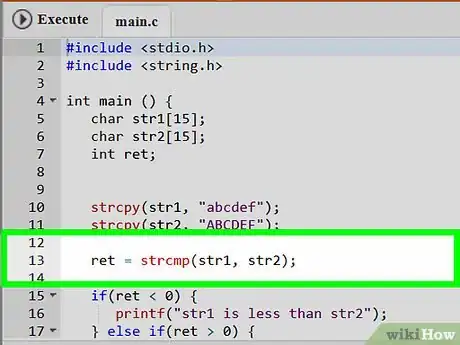
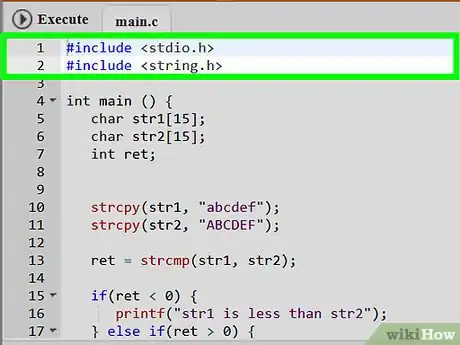
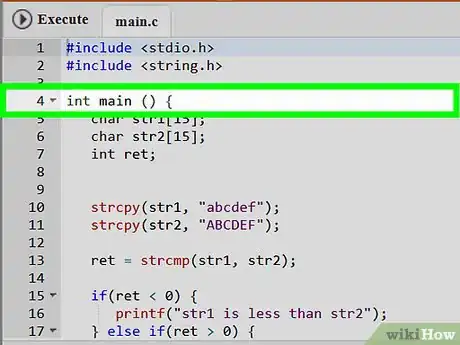
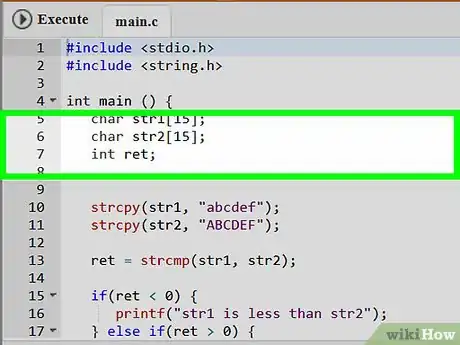
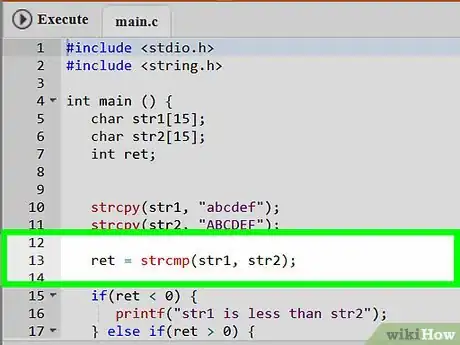
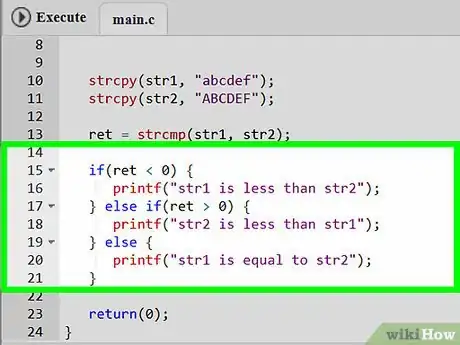



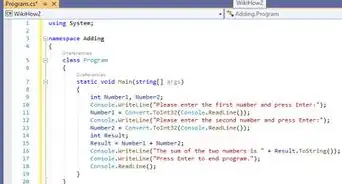
-Step-16-Version-3.webp)
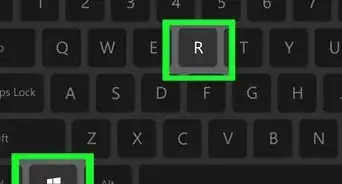
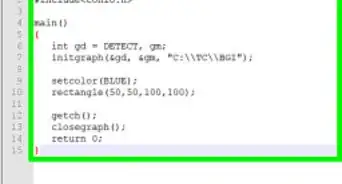
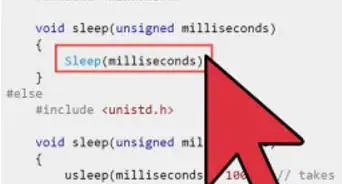

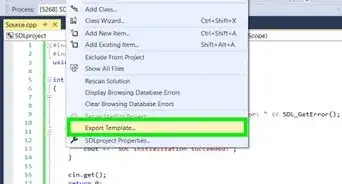

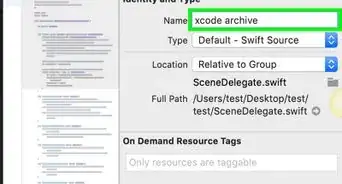








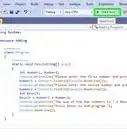
-Step-16-Version-3.webp)



































